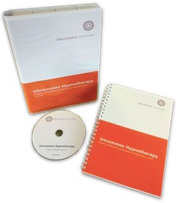
Long gone are the days when it was assumed the mind and body were separate and distinct, that the thoughts and feelings of the mind had no or little direct effect on the workings of the body.
It’s now well established that your thoughts and feelings can have a profound impact on your physical health.
Your immune system is the primary protection mechanism in your body against infection and disease. It needs to produce the right response at the right time to the right degree to help keep you safe and healthy.
Prefer to watch instead?
A complex and subtle system
However, what we call the ‘immune system’ isn’t a single element, like your organs. It is indeed an incredibly complex interconnecting system of structures and processes within you that protect against disease. Its job in life, your life, is to find, hunt down and destroy a wide variety of ‘enemy agents’, so to speak, such as viruses, harmful bacteria and other pathogens.
Pathogens like viruses can adapt very rapidly in such a way that they can avoid detection and neutralization by the immune system. Your immune system has evolved to update its responses to this kind of threat, so it too can adapt over time to recognize specific potentially dangerous pathogens better.
This is amazing. It means that your immune system is an intelligent entity that can learn through experience.
This adaptive immunity creates a kind of ‘immunological memory’ after contact with a specific pathogen, and can then deal with that pathogen more efficiently if it ever tries to enter your body again.
So, in simple terms, your immune system in an adaptive and intelligent force within you which works in many ways.
White blood cells, or leukocytes, are among the most important cells of the immune system involved in defending your body against both infectious disease and foreign materials. They are produced in the bone marrow. A low white blood cell count may indicate infection or disease, while a high count may indicate an autoimmune response.
Get the basics right
Of course, immunity robustness has to do with general health, diet and lifestyle, and if you have any concerns about your health I urge you to seek the advice of a medical doctor and also to take a long hard look at your lifestyle to see how that might be affecting your immune response.
Bad diet, too little sleep, too much sleep, an overdose of extreme exercise – yes you can have too much of a good thing – can all impair immune function. Hypnosis, as I’m going to show, can help, but a healthy lifestyle is still very important.
The state of your mind
Having said that, it is now firmly established that the mind and body are intricately interconnected and that state of mind can directly influence the working of the immune system, and vice versa.
Extreme and prolonged anger, anxiety and the stress of depression all weaken the immune system, just as healthy sleep, optimism and happiness can strengthen it.
So how can hypnosis affect the mind/body connection?
There is compelling evidence that hypnosis can be used to help promote immunity. Relaxation – a lowering of stress in the body – can help boost immunity, and hypnosis, as we know, can be incredibly relaxing. But it seems that beyond the purely relaxing aspects of hypnosis there is good evidence that immunity can be enhanced if certain particular kinds of suggestions are given while you are actually in hypnosis.
Research performed at Washington State University in Pullman found that hypnosis can potentially strengthen two different types of immune cells that fight off disease. (1) Sixty-five students participated in the study. Thirty-three participants were highly hypnotizable and responded well to hypnotherapy induction.
All 65 participants were randomly assigned to three separate groups. One group received hypnosis, one group received relaxation therapy, and one group served as the control group and received no form of therapy or treatment.
The participants who received hypnosis displayed a significant increase in two important types of white blood cells. Those who were highly hypnotizable and received hypnosis showed the largest increase.
Speaking at the American Psychological Association’s annual conference in 1993, the researchers said that this shows that hypnosis can help people boost their white blood cell count and thus boost their immune system and so enhance their capacity to fight off disease.
Relaxation fights stress
Another study at Ohio State University found that hypnotherapy can actually prevent the immune system from weakening due to stress. (2) Hypnosis is a powerful way to relax, and counteracts the immune weakening effects of stress.
One of the researchers went so far as to say: “If you look at individuals who continue to practise hypnosis, they will continue to have enhanced immune function, and those who don’t, won’t.”
So one way you can strengthen and support your own immunological health is to practice hypnosis every day – or at least often and regularly. But, as the first study I mentioned shows, relaxation, while undoubtedly beneficial in itself, may not give you as much benefit as using hypnosis with specific suggestions to strengthen immunity.
The power of metaphor
In one experiment, school children were asked under hypnosis to imagine many strong white knights inside their blood stream. Measurements of their salivary immunoglobulin levels showed a significant increase. (3)
Our own Boost Your Immune System hypnosis download, which I listen to regularly to bolster my own immunity, uses the imagery of a strong secure castle patrolled by guards who kick out any undesirables who have entered the castle and block others from coming in. The whole download is directed towards encouraging the proper regulation of a healthy balanced immune response.
When you practice self hypnosis, you can use these kinds of approaches to great effect. I find it fascinating how your subconscious mind can take a metaphor for health, such as a story of a safe thriving castle, and transform that into an actual change at a cellular level deep inside your body.
Notes:
- Ruzyla-Smith P, Barabasz A, Barabasz M, Warner D. Effects of hypnosis on the immune response: B-cells, T-cells, helper and suppressor cells. American Journal of Clinical Hypnosis. 1995 Oct; 38(2):71-9.
- Kiecolt-Glaser JK, Page GG, Marucha PT, MacCallum RC, Glaser R (1998). Psychological influences on surgical recovery: Perspectives from psychoneuroimmunology. American Psychologist 53:1209-1218.
- Self-Regulation of Salivary Immunoglobulin A by Children. Olness K, Culbert T, Uden D. Pediatrics. 1989 Jan;83(1):66-71.
- Photo courtesy of Jen R







